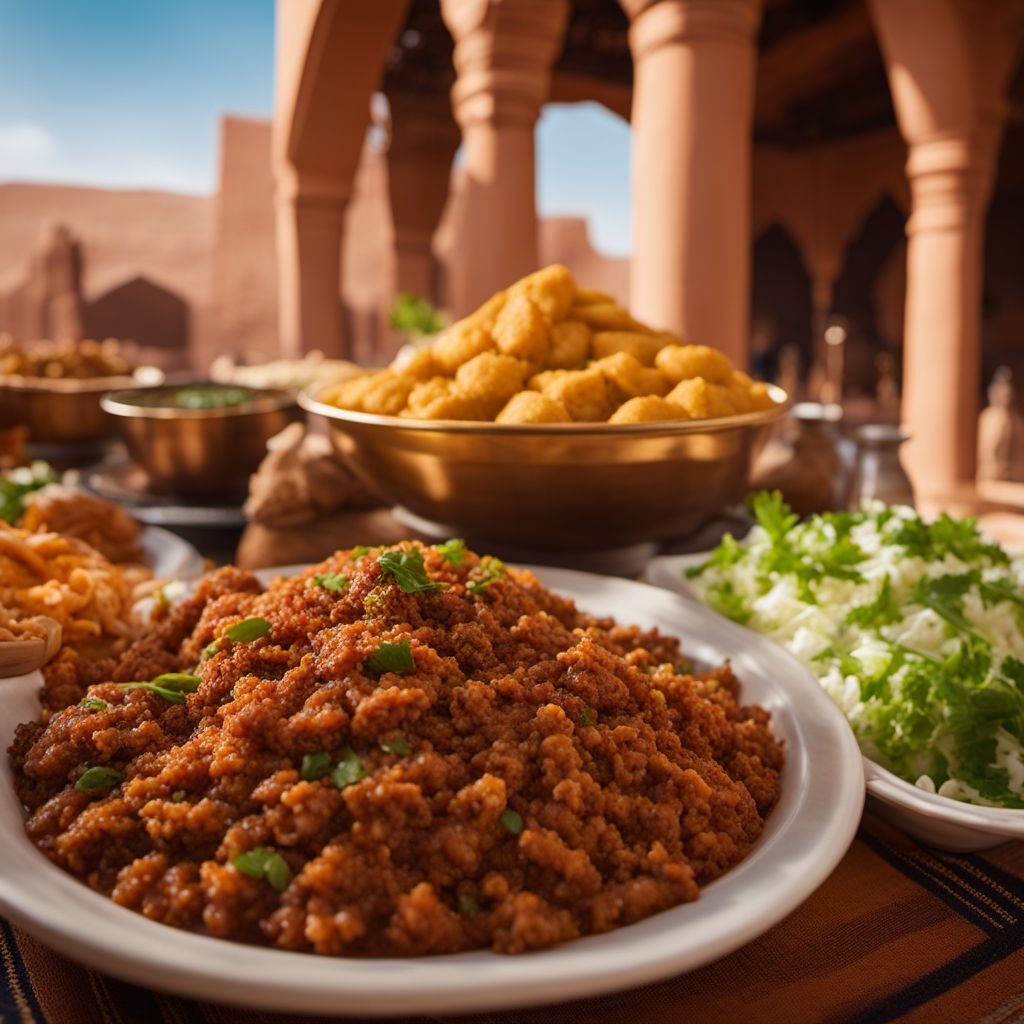
Cuisine
Sudanese cuisine
Sudanese cuisine is based on a few staple ingredients, including sorghum, millet, and wheat. Meat, particularly lamb and beef, is also commonly used. Vegetables such as okra, eggplant, and tomatoes are also popular. Spices such as cumin, coriander, and ginger are used to add flavor to dishes. Sudanese cuisine is also known for its stews, which are often made with meat and vegetables and served over a bed of rice or bread.
Typical ingredients
Sorghum, Millet, Wheat, Lamb, Beef, Okra, Eggplant, Tomatoes, Cumin, Coriander, Ginger, Rice, Bread
Presentation and garnishing
Sudanese dishes are often presented on large platters, with the main dish in the center and the sides arranged around it. Bread is also an important part of the presentation, with many different varieties available. Sudanese cuisine is also known for its use of spices, which are often used to add flavor to stews and other dishes.
Sudanese cuisine is known for its hospitality, with guests being served generous portions of food. Sudanese cuisine is also heavily influenced by Islamic dietary laws, with pork being forbidden and halal meat being preferred.
More cuisines from this region...
Moroccan cuisine, Egyptian cuisine, Algerian cuisine, Tunisian cuisine, Berber cuisine, Libyan cuisine, Mauritanian cuisine, Western Saharan cuisine
History
Sudanese cuisine has a long history, with influences from the ancient Nubian civilization, Arab traders, and Ottoman rule. The cuisine has also been influenced by neighboring countries such as Egypt and Ethiopia. Sudanese cuisine is often associated with hospitality, with meals being a social event and guests being served generous portions of food.
Cultural significance
Food is an important part of Sudanese culture, with meals often being a social event. Sudanese cuisine is also heavily influenced by Islamic dietary laws, with pork being forbidden and halal meat being preferred.
Health benefits and considerations
Sudanese cuisine is generally considered to be healthy, with a focus on fresh ingredients and spices. However, some dishes can be high in fat and calories, particularly those made with meat and fried foods. Sudanese cuisine is also heavily influenced by Islamic dietary laws, with pork being forbidden and halal meat being preferred.
Sudanese cuisine dishes Browse all »

Gamula
Gamula is a traditional Ethiopian dish that is perfect for any occasion. It is a spicy and flavorful meal that is sure to satisfy your taste buds.

Bazin
Bazin is a traditional dish from the African country of Chad. It is a type of porridge made with sorghum flour and water, and is typically served with a spicy meat or vegetable stew.

Eneksa agaga
Eneksa agaga is a traditional Ethiopian dish that is made with injera, a sourdough flatbread, and a variety of stews and sauces. This dish is perfect for those who enjoy bold,...

Saleeg
Milk rice porridge
Saleeg is a traditional Saudi Arabian dish that is made with rice, milk, and a variety of spices. It is a hearty and flavorful dish that is perfect for any occasion.

Shaaria
Shaaria is a traditional Uzbek dish made with lamb and noodles.

Kisra
Kisra is a traditional Sudanese flatbread that is made with a combination of sorghum flour, water, and salt. It is a staple food in Sudan and is often served with stews,...

Areeka
Areeka is a traditional Syrian dish that is made with lamb, rice, and a variety of spices. It is a hearty and flavorful dish that is perfect for a family dinner or special occasion.

Ful sudani
Sudanese Fava Beans
Ful sudani is a traditional Sudanese dish that is typically served for breakfast or lunch. This hearty dish is made with fava beans, spices, and a variety of toppings, and is a...
Sudanese cuisine recipes Browse all »

Sudanese-Inspired Green Chicken Curry Pie
Savory Sudanese Delight: Green Chicken Curry Pie
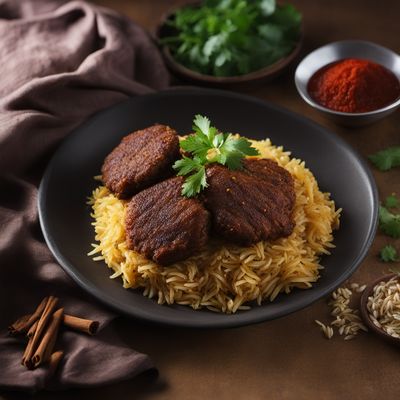
Sudanese-style Spiced Meat Cutlets
Savory Sudanese Meat Cutlets with a Spicy Twist

Kisra - Sudanese Sorghum Flatbread
Savory Delight: Kisra - A Taste of Sudanese Tradition

Sudanese Beetroot-Cured Salmon
Savor the Richness: Sudanese Beetroot-Cured Salmon

Sudanese-style Spiced Shrimp Fritters
Sizzling Sudanese Shrimp Delight
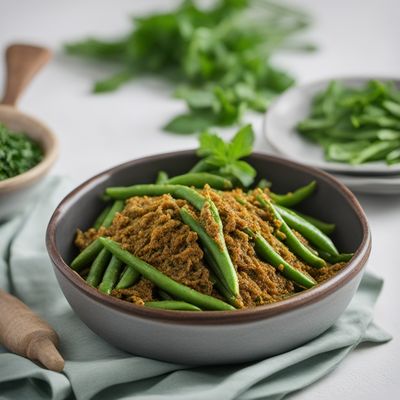
Sudanese-style Green Bean Cake
Savory Delight: Sudanese Green Bean Cake

Sudanese Spiced Cornmeal Bread
Savory Delight: Sudanese Spiced Cornmeal Bread
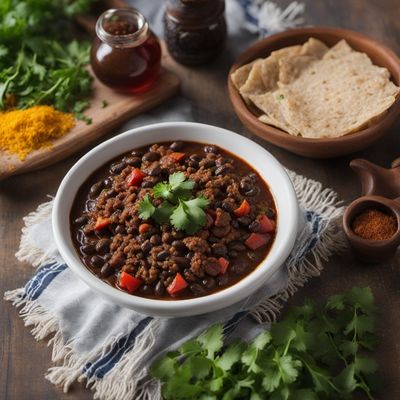
Sudanese-style Feijoada
Savory Sudanese Stew: A Fusion of Portuguese and Sudanese Flavors
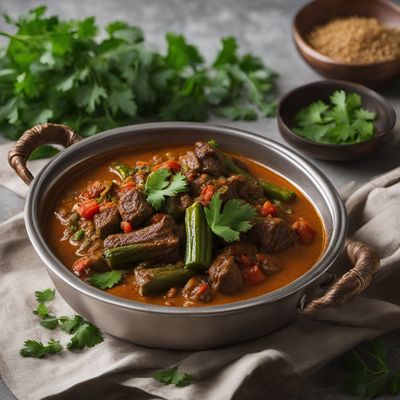
Sudanese Spiced Lamb Stew with Okra
Savory Sudanese Delight: Spiced Lamb Stew with Okra
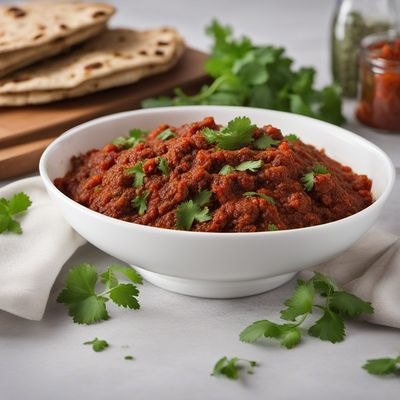
Sudanese Spinialo with a Twist
Savory Sudanese Spinialo: A Fusion of Greek and Sudanese Flavors

Areeka Stew with Sudanese Flavors
Savory Sudanese Areeka Stew: A Burst of Authentic Flavors
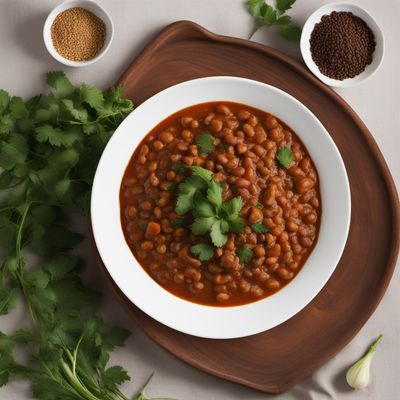
Sudani Spiced Fava Beans
Savor the Flavors of Sudan: Sudani Spiced Fava Beans